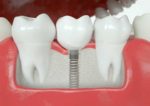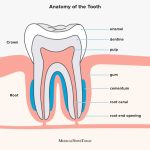Teeth Implants 101: Understanding How They Work for a Confident Smile

Teeth implants have revolutionized the dental industry and provided a more permanent solution to missing teeth. Whether it’s due to a dental injury or decay, implants can restore the missing tooth’s functionality and give you a confident smile. Understanding how dental implants work is crucial in making an informed decision and preparing for the procedure. In this Teeth Implants 101 guide, we’ll explore the basics of dental implants, including how they work, the types of implants available, and the benefits of getting them. Dental implants are artificial tooth roots that are surgically implanted into your jawbone to support a dental prosthetic. They act as a sturdy foundation for a variety of dental restorations, including crowns, bridges, and dentures. Implants are made of biocompatible materials, such as titanium, that fuse with the jawbone to create a stable and long-lasting support system. Unlike traditional dental prosthetics, implants provide a permanent solution that can last a lifetime with proper care. With advancements in dental technology, dental implants have become a viable option for people of all ages and backgrounds, making them an excellent choice for restoring your smile’s functionality and confidence.
Teeth implants are artificial tooth roots that are surgically implanted into the jawbone to support a replacement tooth or bridge. They are typically made of titanium, a durable and biocompatible material that can fuse with the surrounding bone tissue to create a stable foundation. Implants can be used to replace a single missing tooth, several missing teeth, or even an entire arch of teeth. They offer a permanent and aesthetically pleasing solution for those who have lost teeth due to injury, decay, or other dental problems. With proper care and maintenance, teeth implants can last for many years, providing patients with a confident and functional smile.
People consider getting teeth implants for various reasons, but the most common one is to replace missing or damaged teeth. Teeth implants can help individuals regain their confidence by restoring their smile and improving their overall appearance. Additionally, implants offer a long-term solution that is more durable and functional than other dental restorations. They allow people to eat their favorite foods, speak clearly, and maintain good oral health. Moreover, teeth implants can prevent bone loss in the jaw, which can occur after tooth loss and affect the facial structure. Overall, teeth implants are a popular choice for people who want to improve their quality of life by restoring their dental function and aesthetics.
Throughout history, humans have been searching for ways to replace missing teeth. Archaeological evidence shows that ancient civilizations, such as the Mayans and Egyptians, used materials like seashells and animal teeth to create rudimentary dental implants. However, it wasn’t until the 1950s that modern dental implants were first developed. A Swedish orthopedic surgeon named Per-Ingvar Brånemark discovered that titanium could fuse with bone tissue, a process called osseointegration. This discovery led to the development of the first titanium dental implant, and since then, dental implant technology has continued to advance. Today, dental implants are a safe and effective solution for replacing missing teeth, helping people to regain their confidence and improve their oral health.
How Teeth Implants Work

Teeth implants are artificial tooth roots made of titanium that are surgically placed into the jawbone. These implants fuse with the bone over time, creating a stable anchor for a replacement tooth or bridge. The process of getting a dental implant typically involves several visits to the dentist or oral surgeon, including a consultation, implant placement surgery, and follow-up appointments to ensure proper healing and placement. During the consultation, the dentist will evaluate the patient’s oral health and determine if they are a good candidate for a dental implant. This may involve taking X-rays and other imaging tests to assess the condition of the jawbone and surrounding teeth. If the patient is deemed a good candidate, the implant surgery is scheduled. During the surgery, the dentist or oral surgeon will make an incision in the gum tissue and insert the implant into the jawbone. Over the next several months, the implant will fuse with the bone in a process called osseointegration. Once the implant has fully fused with the bone, a replacement tooth or bridge can be attached to the implant, restoring the patient’s smile and dental function.
Teeth implants are artificial roots that are surgically placed into the jawbone to support replacement teeth or bridges. There are two main types of teeth implants: endosteal and subperiosteal. Endosteal implants are the most commonly used and are implanted directly into the jawbone. They are typically made of titanium and are shaped like small screws or cylinders. Subperiosteal implants, on the other hand, are placed on top of the jawbone but beneath the gum line. These types of implants are used when the patient does not have enough healthy jawbone to support endosteal implants. Both types of implants are highly effective at restoring missing teeth and can improve a patient’s overall oral health and quality of life.
The implant procedure is a highly effective dental treatment for those who have lost one or more teeth. It involves the surgical placement of a titanium post into the jawbone, which then serves as an anchor for a replacement tooth or bridge. The procedure can take several months, as the post must fuse with the bone in a process called osseointegration. Once the post is secure, a custom-made crown or bridge is attached to the post, restoring the appearance and function of the missing tooth. The implant procedure is a safe and long-lasting solution for tooth loss, and with proper care, implants can last a lifetime. While the process may seem daunting, the results are well worth it: a beautiful, confident smile that looks and feels completely natural.
The healing process for teeth implants is a crucial step in achieving a confident and healthy smile. After the implant has been surgically placed in the jawbone, the surrounding tissue and bone begin to naturally integrate with the implant through a process called osseointegration. This can take several months, and during this time, it is important to follow proper oral hygiene practices and avoid putting too much pressure on the implant. Once the healing process is complete, a dental crown or other restoration can be attached to the implant, providing a natural-looking and functional replacement for the missing tooth. Overall, the healing process is essential for the long-term success of a teeth implant and should be carefully managed by a qualified dental professional.
Teeth implants are a long-term investment in your oral health, and their maintenance is crucial to ensure their longevity. It’s vital to maintain good oral hygiene by brushing and flossing daily, and regular dental visits are essential. In addition, avoid chewing hard foods or biting on non-food items, which can damage the implant crown or abutment. Smoking also increases the risk of implant failure, so quitting smoking is recommended. A balanced diet that includes calcium and vitamin D will help maintain healthy bones that support the implant. By following these care tips, you can enjoy your teeth implants for many years to come with a confident and healthy smile.
Benefits and Risks of Getting Teeth Implants
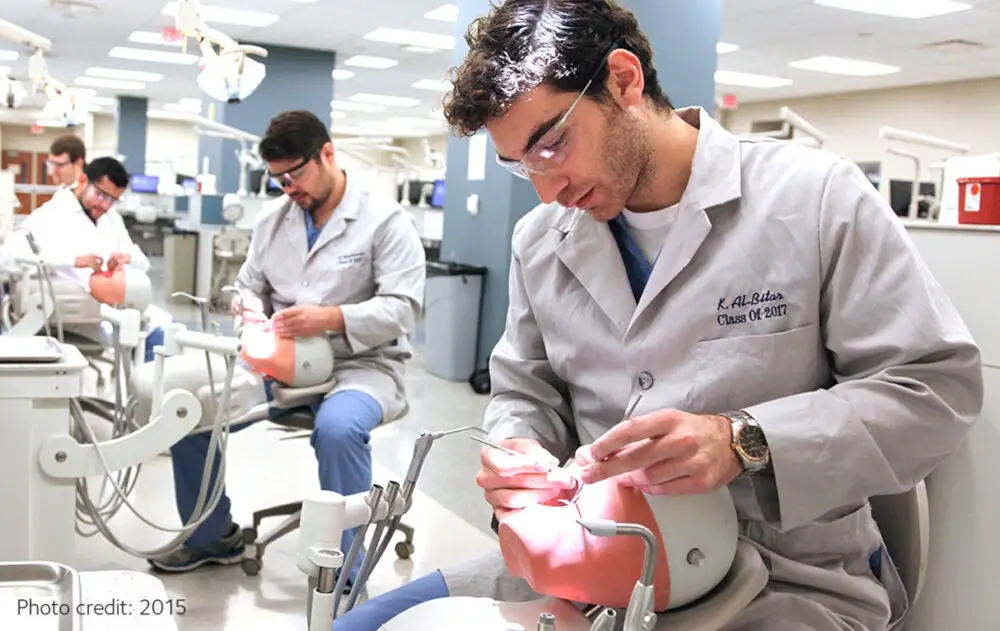
Teeth implants have become increasingly popular in recent years as a solution for missing teeth. They offer numerous benefits over traditional dentures and bridges. One of the main benefits of dental implants is that they look and feel like natural teeth. They are also very durable and can last for many years with proper care. Dental implants offer a permanent solution to missing teeth, unlike dentures and bridges which need to be replaced over time. They also help to maintain the structure of the jawbone, which can deteriorate over time as a result of missing teeth. With dental implants, patients can enjoy their favorite foods without any restrictions, and they can smile and speak with confidence. However, there are some risks associated with dental implants that patients should be aware of. One of the main risks is infection, which can occur if the implant is not properly placed or if the patient does not maintain good oral hygiene. In some cases, the implant may fail to integrate with the jawbone, which can cause discomfort and require further treatment. Patients may also experience nerve damage or sinus problems as a result of the implant. It is important for patients to discuss the risks and benefits of dental implants with their dentist before undergoing the procedure. With proper care and maintenance, dental implants can provide a long-lasting solution for missing teeth and help patients to achieve a confident smile.
Teeth implants are a modern and highly effective solution for replacing missing or damaged teeth. One of the key benefits of teeth implants is that they are designed to look and feel just like your natural teeth, providing a seamless and comfortable experience. Additionally, unlike dentures, teeth implants are permanently fixed in place, meaning that you can eat, speak, and smile with confidence, without worrying about your replacement teeth slipping or falling out. Teeth implants are also a long-term solution, with many patients enjoying their implants for decades or even a lifetime with proper care. Overall, teeth implants offer a range of benefits, from improved confidence and self-esteem to better oral health and function, making them an excellent choice for anyone seeking a more permanent and natural-looking solution for missing or damaged teeth.
Teeth implants are generally a safe and effective way to replace missing teeth, but like any medical procedure, there are risks and potential complications. One of the most common risks is infection, which can occur during the implant surgery or in the months after the procedure. Other risks include nerve damage, which can cause numbness or tingling in the mouth, and implant failure, which can result in the need for additional surgery. In rare cases, implants can also cause sinus problems or damage to surrounding teeth or bones. It’s important to discuss these risks with your dentist or oral surgeon before deciding on implants, and to follow all post-operative instructions carefully to minimize your risk of complications.
Who is a Good Candidate for Teeth Implants?
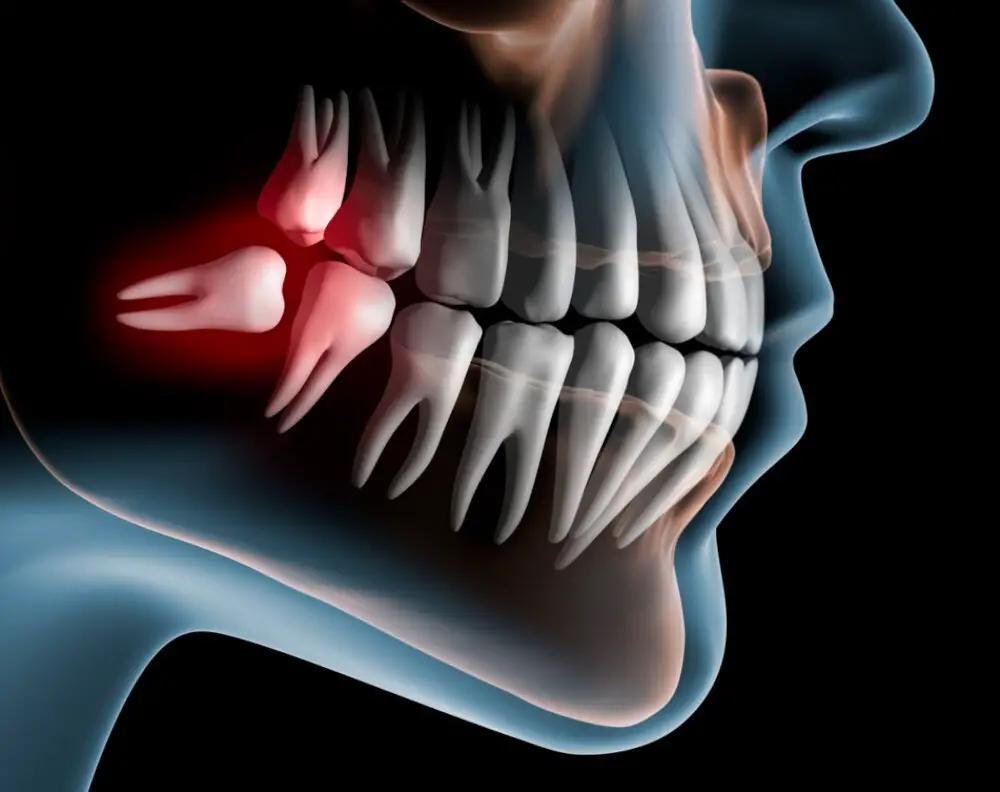
Teeth implants are a popular dental solution for people who have missing teeth due to injury or decay. However, not everyone is a good candidate for the procedure. A good candidate for teeth implants must have healthy gums and sufficient bone density to support the implant. If the patient has gum disease or bone loss, they may require additional treatment before the implant procedure can be performed. Additionally, a good candidate for teeth implants must be committed to taking care of their oral health. This includes maintaining good dental hygiene habits such as brushing and flossing regularly and attending regular dental check-ups. Patients who smoke or have a history of heavy alcohol consumption may not be good candidates for teeth implants as these habits can increase the risk of implant failure. Ultimately, a consultation with a dental professional is necessary to determine if teeth implants are the right solution for a patient’s dental needs.
There are several factors that determine eligibility for teeth implants, including the condition of the patient’s oral health, the density of their jawbone, and any pre-existing medical conditions that could affect the healing process. Patients who have good oral hygiene habits and healthy gums are typically good candidates for dental implants, as are those who have sufficient bone density to support the implant. Patients who have medical conditions such as diabetes or heart disease may still be eligible for dental implants, but their overall health will need to be carefully evaluated before the procedure can be performed. Additionally, patients who smoke or use tobacco products may be advised to quit before undergoing dental implant surgery, as smoking can significantly increase the risk of complications and implant failure.
Teeth implants are a popular and effective solution for those who have lost teeth due to injury, decay, or other reasons. However, not everyone is a good candidate for this procedure. Certain conditions can affect eligibility for teeth implants, including gum disease, untreated tooth decay, and a weakened immune system. In addition, individuals who smoke, have a history of radiation therapy to the head or neck, or have certain chronic illnesses such as diabetes may also be ineligible for this procedure. It is important to consult with a dental professional to determine if teeth implants are a viable option for your specific case.
Cost of Teeth Implants
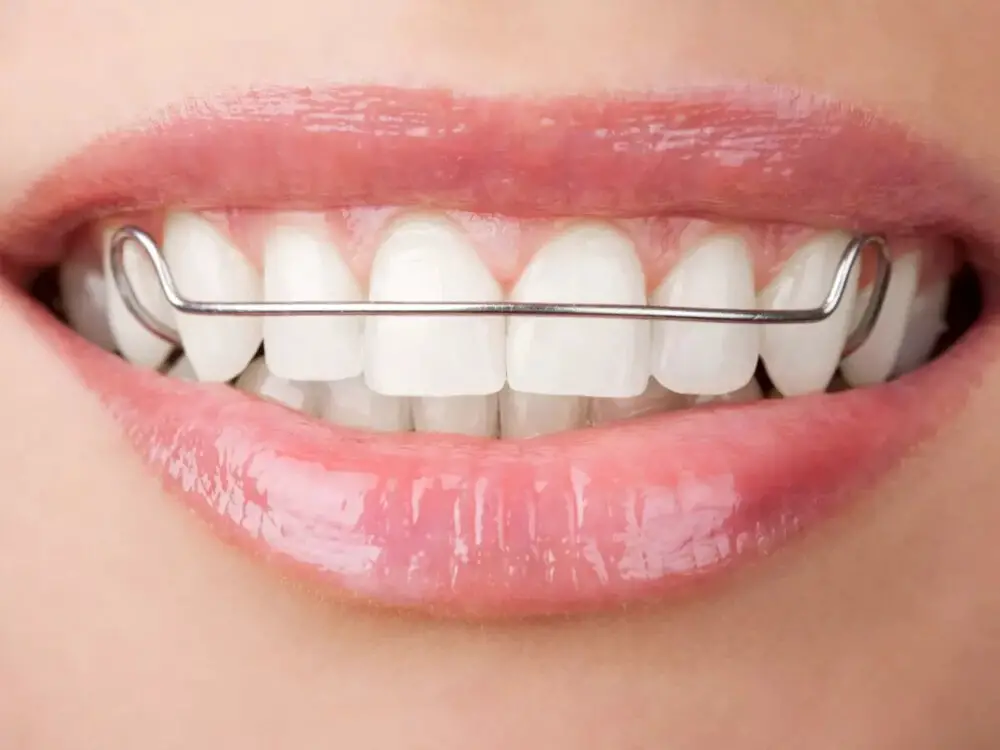
Teeth implants are a popular option for those looking to restore their smile and improve their oral health. However, one of the most significant concerns when it comes to dental implants is the cost. The price of teeth implants can vary depending on several factors, such as the number of implants needed, the type of implant used, and the location of the dental clinic. On average, a single dental implant can cost anywhere between $1,000 to $4,000, with the total cost of multiple implants ranging from $3,000 to $30,000 or more. While the cost of teeth implants can seem daunting, it’s essential to consider the long-term benefits that come with this procedure. Dental implants are a permanent solution that can last a lifetime with proper care, unlike other options such as dentures that may require frequent replacement. Additionally, dental implants can prevent further damage to your teeth and gums, improving your overall oral health and potentially saving you money in the long run. Many dental clinics also offer payment plans and financing options to help make teeth implants more affordable for patients.
There are several factors that can affect the cost of teeth implants, including the number of teeth that need to be replaced, the type of implant material and techniques used, the complexity of the procedure, and the location of the dentist’s practice. Generally, the more teeth that need to be replaced, the higher the cost will be. Implants made from higher-quality materials, such as zirconia, may also be more expensive. Additionally, if the patient requires additional procedures, such as bone grafting or sinus lifts, the overall cost may increase. The location of the dentist’s practice can also play a role in the cost, as prices can vary based on regional differences in the cost of living and dental services. It’s important for patients to discuss all of these factors with their dentist before undergoing the procedure to ensure they understand the total cost and any potential financial options or insurance coverage that may be available.
When it comes to teeth implants, the cost can vary depending on a number of factors. On average, a single tooth implant can cost anywhere from $1,000 to $3,000, but the total cost can go up significantly if multiple teeth need to be replaced. Other factors that can affect the cost include the type of implant used, the complexity of the procedure, and the location of the dental practice. It’s important to keep in mind that while implants may seem expensive upfront, they are a long-term investment in your oral health and can ultimately save you money in the long run by preventing further dental issues. It’s also worth checking with your dental insurance provider to see if they cover any portion of the cost.
Financing options for teeth implants can vary depending on the individual’s financial situation and the location where the procedure is being performed. Some dental offices may offer financing plans directly to patients, allowing them to make monthly payments over a set period of time. Other options may include applying for a personal loan through a bank or credit union. Additionally, some insurance plans may cover a portion of the cost of teeth implants, depending on the specific policy and reason for the procedure. It is important to research and compare financing options to ensure that the best possible option is selected, as teeth implants can be a costly procedure.
Teeth implants have become increasingly popular in recent years as a solution for missing or damaged teeth. They involve inserting a titanium post into the jawbone, which fuses with the bone over time, creating a stable base for a replacement tooth. Implants offer a range of benefits, including improved appearance, better speech and chewing function, and a long lifespan. The implant procedure can take several months to complete, but the results are worth the investment. While implants require proper care and maintenance, they offer a permanent solution for those seeking a confident, functional smile.
If you’re considering teeth implants, it’s important to do your research and find an experienced dental professional to help guide you through the process. Make sure to discuss your expectations, concerns, and any potential risks with your dentist before moving forward with the procedure. It’s also important to maintain good oral hygiene habits, such as brushing and flossing regularly, to ensure the longevity of your implants. With proper care and maintenance, teeth implants can provide a confident and natural-looking smile for many years to come.
The future outlook for teeth implant technology is promising, with advancements in materials and techniques aimed at improving the success rate and longevity of implants. Researchers are exploring the use of nanotechnology to create stronger and more durable implant materials, as well as 3D printing to create custom-fit implants. Additionally, innovations in implant placement and restoration techniques are making the process less invasive and more efficient. With the increasing demand for dental implants, it is expected that the technology will continue to evolve and improve, providing patients with more comfortable, effective, and long-lasting solutions for missing teeth.
Conclusion
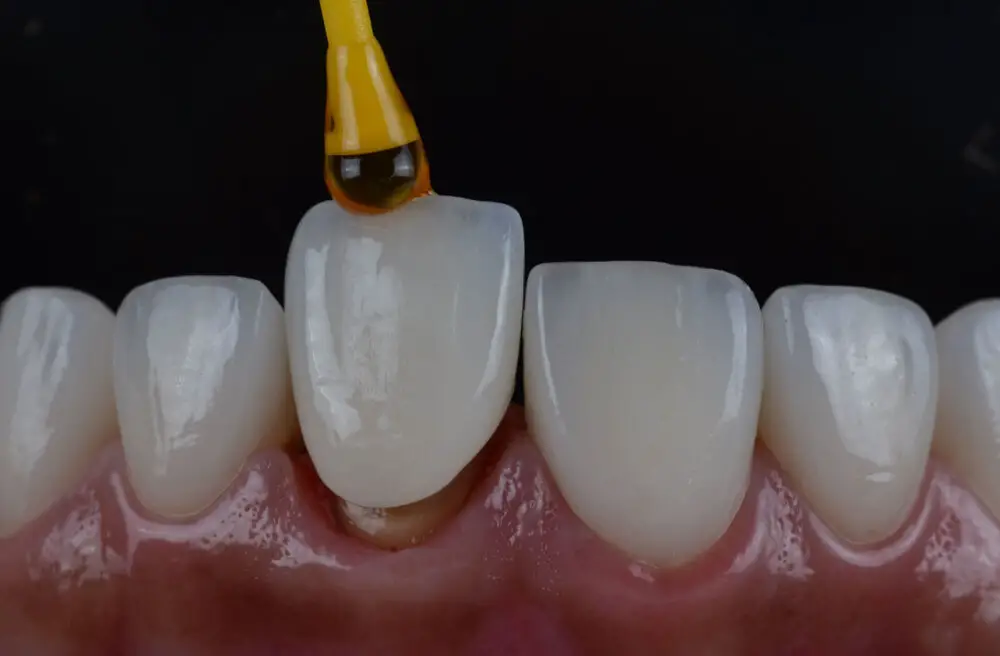
In conclusion, teeth implants have revolutionized the dental industry by providing a long-lasting solution for missing teeth. They work by integrating with the jawbone, providing a stable base for the artificial tooth. With proper care, teeth implants can last a lifetime and restore confidence in one’s smile. It’s important to consult with a qualified dental professional to determine if teeth implants are the right option for you. Don’t let missing teeth hold you back any longer – consider teeth implants for a confident and healthy smile.
